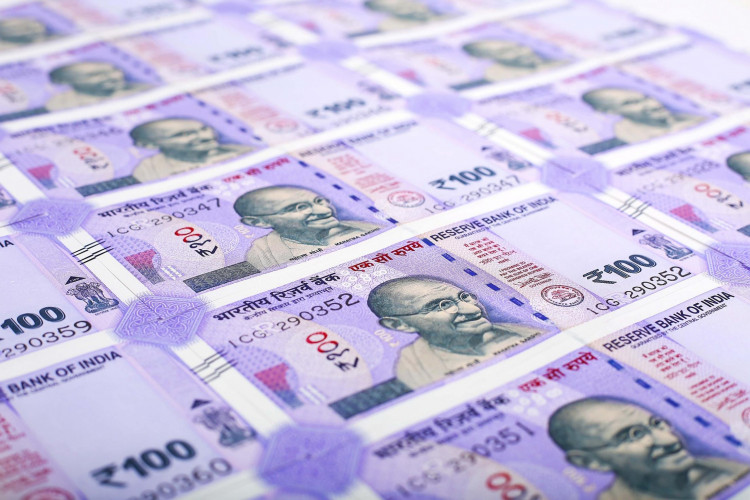India's financial markets experienced a dramatic selloff as Prime Minister Narendra Modi's Bharatiya Janata Party (BJP) failed to secure an anticipated landslide victory in the recent elections. The significant market reaction reflects investor anxiety about the country's economic direction under a less decisive mandate.
On Tuesday, the Nifty 50 index plunged 5.93%, while the BSE Sensex fell 5.74%, marking the steepest declines since 2020. The Bombay Stock Exchange's All India Market Capitalization index lost over 31.06 trillion rupees, or roughly $371 billion, in a single day. These losses erased the Sensex's year-to-date gains, plunging from a 5.85% increase to a 0.22% loss. Similarly, the Nifty 50 saw its 7% year-to-date gain drop to a mere 0.7%.
Despite the market turmoil, both indices showed signs of recovery on Wednesday. The Nifty 50 rebounded by 0.7%, and the Sensex edged up 0.26%.
Modi's BJP secured 240 seats in the lower house of parliament, falling short of a single-party majority but still managing to retain power through the National Democratic Alliance (NDA), which clinched 294 seats. This outcome contrasts sharply with the 2019 election, where the BJP alone won 303 seats and the NDA secured 353 seats. Modi's ambitious goal of surpassing 400 seats this election cycle was not met, casting doubts on the party's previously unchallenged dominance.
The opposition coalition, Indian National Developmental Inclusive Alliance (INDIA), led by the Indian National Congress, performed better than expected, winning 233 seats. This stronger-than-anticipated showing by the opposition is seen as a rebuke to Modi's administration, highlighting the electorate's desire for change after a decade of BJP rule.
Goldman Sachs analysts, in a report issued early Wednesday, stated that "even with a reduced majority, we don't think macro stability will be compromised." However, they cautioned that a weaker mandate might complicate the implementation of significant structural reforms, such as those needed to enhance manufacturing growth and agricultural productivity.
Investors expressed concerns that the BJP's inability to secure a robust majority would hinder its ability to push through business-friendly reforms. Alessia Berardi, head of emerging macro strategy at Amundi Investment Institute, noted, "You have the feeling that while the government was really geared towards business, there are other parts of the country that felt left behind. A more inclusive economy, a more efficient economy is important."
The stock market reaction was particularly severe for companies anticipated to benefit from infrastructure and manufacturing investments. Conversely, stocks tied to rural demand, such as Nestle India and Hero MotoCorp, experienced gains as investors anticipated a shift in government focus towards rural support.
Bonds weakened as traders priced in the risk of increased welfare spending and delayed fiscal consolidation. The rupee also skidded to a seven-week low against the dollar, reflecting broader economic uncertainties.
Despite the immediate market turmoil, some investors view the current dip as a buying opportunity. Kristina Hooper, chief global market strategist at Invesco, commented, "We're still seeing strong growth coming from India... I think it's a buying opportunity." However, many investors remain cautious, adjusting their portfolios to reflect the new political landscape.
For instance, Vikas Pershad of M&G Investments shifted investments from defense stocks to healthcare, while analysts at CLSA moved from infrastructure conglomerate Larsen & Toubro to IT outsourcing firm HCL Tech. These moves reflect a more defensive strategy in light of the uncertain policy environment.
The upcoming budget, due in July, will be a critical test of the government's policy commitments. Economists expect the budget to reveal more about the government's plans to balance welfare spending with fiscal discipline.
Foreign investors, who have been cautious amid the election uncertainties, may continue to tread carefully. Paul Christopher, head of global market strategy at Wells Fargo Investment Institute, advised, "I'm telling clients don't be in a hurry to invest in India. It's still a pretty chaotic place."






